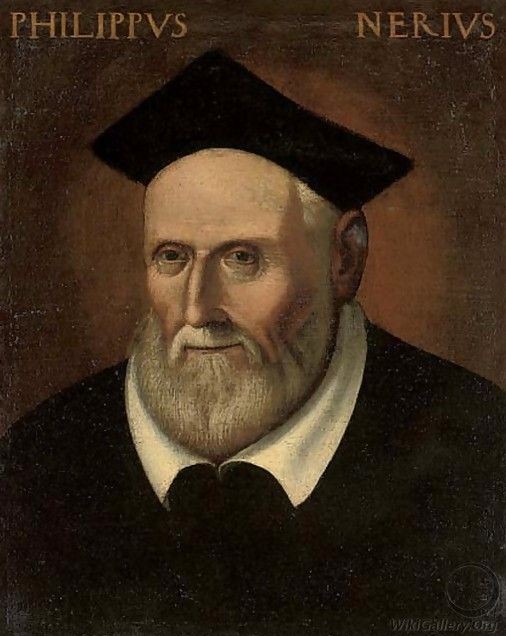Posted on May 20, 2014 View all news
 May 19 – Philip’s Exercise of Prayer
May 19 – Philip’s Exercise of Prayer
From very boyhood the servant of God gave himself up to prayer, until he acquired such a habit of it, that, wherever he was, his mind was always lifted up to heavenly things.
Sometimes he forgot to eat; sometimes, when he was dressing, he left off, being carried away in his thought to heaven, with his eyes open, yet abstracted from all things around him.
It was easier for Philip to think upon God, than for men of the world to think of the world.
If anyone entered his room suddenly, he would most probably find him so rapt in prayer, that, when spoken to, he did not give the right answer, and had to take a turn or two up and down the room before he fully came to himself.
If he gave way to his habit of prayer in the most trifling degree, he immediately became lost in contemplation.
It was necessary to distract him lest this continual stretch of mind should be prejudicial to his health.
Before transacting business, however trivial, he always prayed; when asked a question, he never answered till he had recollected himself.
He began praying when he went to bed, and as soon as he awoke, and he did not usually sleep more than four, or at the most five hours.
Sometimes, if anyone showed that he had observed that Philip went to bed late or rose early in order to pray, he would answer, “Paradise is not made for sluggards.”
He was more than ordinarily intent on prayer at the more solemn feasts, or at a time of urgent spiritual necessities; above all, in Holy Week.
Those who could not make long meditations he advised to lift up their minds repeatedly to God in ejaculatory prayers, as “Jesus, increase my faith,” “Jesus, grant that I may never offend Thee.”
Philip introduced family prayer into many of the principal houses of Rome.
When one of his penitents asked him to teach him how to pray, he answered, “Be humble and obedient, and the Holy Ghost will teach you.”
He had a special devotion for the Third Person of the Blessed Trinity, and daily poured out before Him most fervent prayers for gifts and graces.
Once, when he was passing the night in prayer in the Catacombs, that great miracle took place of the Divine presence of the Holy Ghost descending upon him under the appearance of a ball of fire, entering into his mouth and lodging in his breast, from which time he had a supernatural palpitation of the heart.
He used to say that when our prayers are in the way of being granted, we must not leave off, but pray as fervently as before.
He especially recommended beginners to meditate on the four last things, and used to say that he who does not in his thoughts and fears go down to hell in his lifetime, runs a great risk of going there when he dies.
When he wished to show the necessity of prayer, he said that a man without prayer was an animal without reason.
Many of his disciples improved greatly in this exercise – not religious only, but secular persons, artisans, merchants, physicians, lawyers, and courtiers – and became such men of prayer as to receive extraordinary favours from God.
Prayer
Philip, my holy Patron, teach me by thy example, and gain for me by thy intercessions, to seek my Lord and God at all times and in all places, and to live in His presence and in sacred intercourse with Him. As the children of this world look up to rich men or men in station for the favour which they desire, so may I ever lift up my eyes and hands and heart towards heaven, and betake myself to the Source of all good for those goods which I need. As the children of this world converse with their friends and find their pleasure in them, so may I ever hold communion with Saints and Angels, and with the Blessed Virgin, the Mother of my Lord. Pray with me, O Philip, as thou didst pray with thy penitents here below, and then prayer will become sweet to me, as it did to them.
